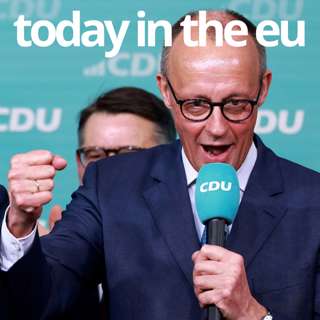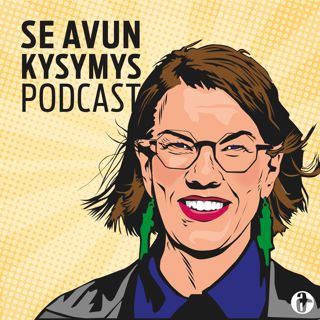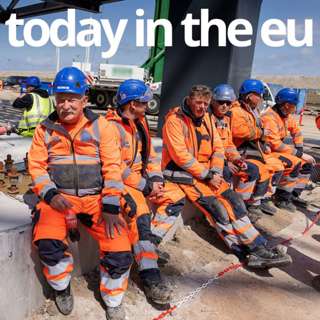
Von der Leyen’s Competitiveness Compass explained
European Commission's President von der Leyen unveils today her 'North Star' of economic strategy: the Competitiveness Compass. Beyond the motto of simplifying and unifying, the document has drawn praise from businesses and raised alarms among unions. What impact will it have on the Union's economic future?In this episode, host Giada Santana talks to Euractiv's economy reporter, Thomas Moller-Nielsen, to unpack the Compass' key takeaways.
29 Tammi 15min
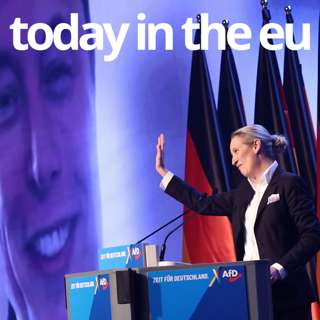
How Alice Weidel redefined Germany’s far right
By becoming the moderate face of the AfD, Alice Weidel helped transform the party from a fringe movement into a dominant force, forcing its rivals to rethink their electoral strategy. However, Weidel's private life reveals contradictions some argue clash with the traditional values of the far-right movement.She has lived abroad, is openly in a same-sex relationship, and splits her time between Germany and Switzerland. But rather than hindering her rise, these complexities have fuelled Weidel's climb to power, positioning the 46-year-old as a contender for the chancellorship.In this episode, host Giada Santana is joined by Berlin-based politics reporter Nick Alipour to examine the AfD's transformation under Weidel’s leadership.
28 Tammi 14min
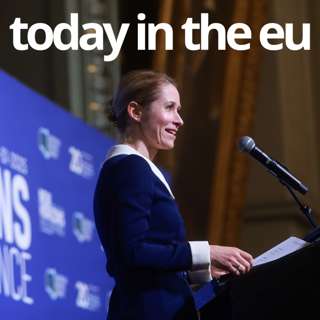
Why the EU’s new crisis force won’t be deployed just yet
The European Union approved its first-ever crisis response unit, a 5,000-strong force designed to address threats outside its borders. However, as EU foreign ministers convene today to once again deliberate on Russia’s ongoing invasion of Ukraine, one thing seems clear: the newly minted crisis unit doesn't look set to be heading to Kyiv – or anywhere else – in the immediate future.Why is the EU keeping its crisis response corps on standby during one of the most significant security challenges in its modern history? And if Ukraine is off the table, what types of crises or regions might eventually trigger their first mission?
27 Tammi 11min
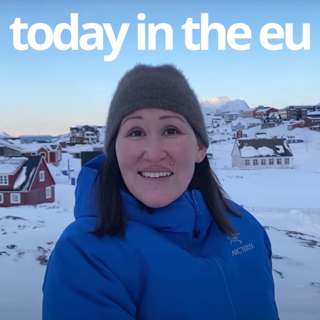
Everybody wants Greenland, but what does Greenland want?
Greenland has come into the limelight after Donald Trump suggested buying the island in late December. The controversy reignited a wish for independence in the world's largest island, and thrown the government in Copenhagen into a political quagmire. In this episode, host Giada Santana speaks with politics reporter Magnus Lund Nielsen, who has been covering the latest developments in Greenland on the ground for the past two weeks.
24 Tammi 19min
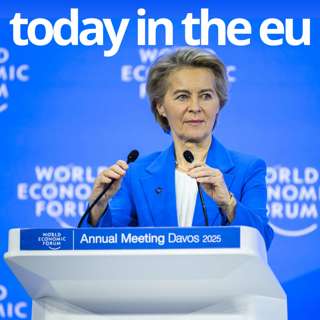
Von der Leyen's Davos economic vision for Europe
As European leaders and the world's most powerful companies descended upon Davos, Switzerland, for the World Economic Forum this week, Commission President Ursula von der Leyen used the summit to unveil plans aimed at boosting the EU’s competitiveness, expanding trade, and attracting much-needed talent.But is the market buying into it? Business leaders might see the EU blueprint short on specifics, as sluggish growth continues to weigh on the bloc, and the potential effects of US tariffs remain difficult to gauge. Can Brussels steer Europe through mounting global challenges? And how robust is its economic playbook for the future?In this episode, host Giada Santana speaks with economy reporter Thomas Moller Nielsen about the EU’s stance on innovation, competitiveness, and tariffs as publicised in Davos.
23 Tammi 22min
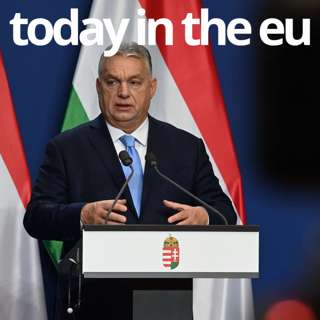
How a spy scandal exposed EU's failure to protect its officials
The EU is facing some serious questions about the lack of robust counter-intelligence measures after an investigation revealed that Hungarian secret forces spied on the European Anti-Fraud Office between 2015 and 2017. During this time, the office investigated corruption linked to Hungarian Prime Minister Viktor Orbán's son-in-law. How could the espionage go unnoticed for three years? And what does it say about the EU’s counter-intelligence efforts – or lack thereof? In this episode, host Giada Santana speaks with Szabolcs Panyi, the lead Hungarian journalist who uncovered the spy scandal, and Greens MEP Daniel Freund about the EU's failure to shield its civil servants from foreign espionage.
22 Tammi 18min
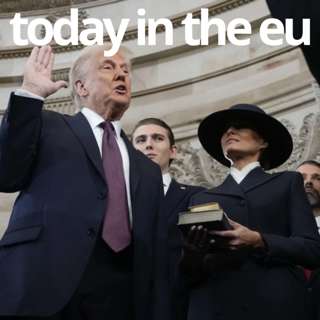
What the EU stands to lose from Trump 2.0
For his first full day in office as 47th president, Donald Trump is expected to sign as many as 100 executive orders on climate, tariffs and national security. Meanwhile, the European Union remains without clear leadership, as member states such as France, Germany, and Austria grapple with domestic political challenges. What did Trump pledge in his inauguration speech? And what could his presidency mean for Europe?In this episode, host Giada Santana speaks with Peter Rough, Director of the Center on Europe at the Hudson Institute, and Jeremy Shapiro, Research Director at the European Council on Foreign Relations, to explore the implications of Trump’s return to the White House.
21 Tammi 21min
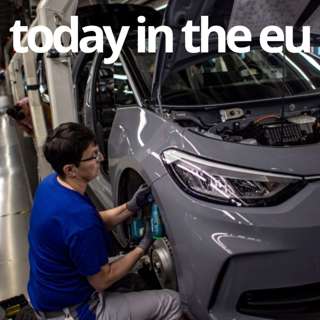
What makes 2025 the lucky year for EV buyers
German carmakers are under pressure. They must meet new EU carbon emission targets. Chinese manufacturers are gaining ground with cheaper, subsidized electric vehicles. A new German government could bring policy changes for the industry.How are German carmakers trying to save the EV market?In this episode, host Giada Santana talks to Jasper Steinlein, a reporter covering energy, the environment, and transport. They discuss the crisis facing German carmakers and how political parties are promising to fix it.
20 Tammi 17min
